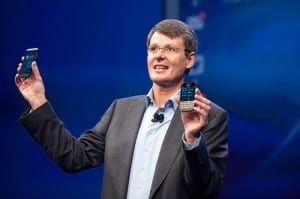
BlackBerry 10, the new operating system for BlackBerry phones was launched today by the company formerly known as Research In Motion Ltd., which changed its name to BlackBerry, today.
The BlackBerry 10 operating system was originally set to launch in 2011, but the date was pushed back twice because of complications with its development.
Though Blackberry 10 has been launched, there will be a delay in new phones being delivered to the U.S., according to BlackBerry CEO Thorsten Heins, because of testing that still needs to be done on the phones by U.S. carriers.
The first phone to launch with the BlackBerry 10 operating system will be the BlackBerry Z10, a touchscreen device with a browser, cameras and apps already installed, an attempt to compete with Apple’s iPhone and Google’s Android operating devices.
In April, a Q10 model will be released with a traditional BlackBerry keyboard on the device.
CNN reviewed features of the new operating system and Z10 which it found to be particularly appealing or off-putting for consumers. The positives included a Balance productivity feature (included with BlackBerry Enterprise Service 10, only) that can split the phone into two devices, separate for work and for personal use; an update to BlackBerry Messenger with video chat and the ability for users to share screens; and a touchscreen keyboard that can adapt to how its user types and become more accurate over time. The negatives included BlackBerry’s current underdog status and the lack of a complete catalog of popular and widely-used apps optimized for the new operating system, in comparison with the App Store and the Google Play store.
Alicia Keys is BlackBerry’s new celebrity endorsement, and the company hosted its launch parties for BlackBerry 10 at various high-profile venues around the world.
The Z10 and Q10 phones that will run the BlackBerry 10 operating system are projected to cost around $200 for a two-year contract, comparable to other popular smartphones.















